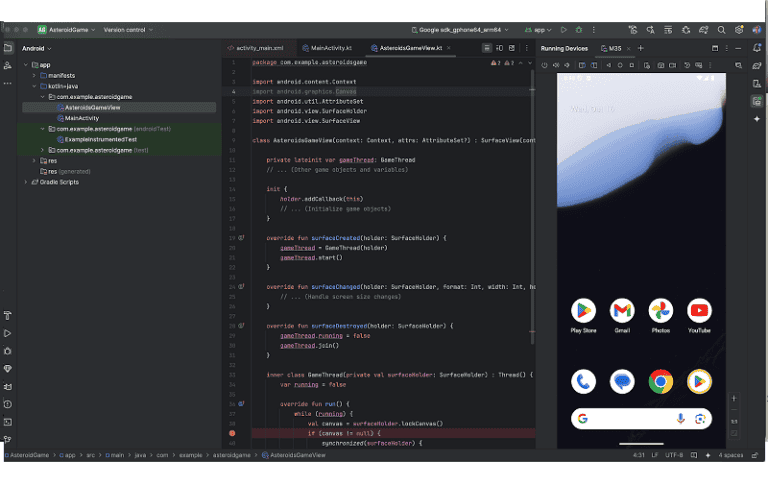An update has made Project Quartz’s Android Emulator much more stable as well as reliable. It also offers more performance. This should give app developers fewer crashes, faster start times, fewer bugs and better troubleshooting and prevention capabilities.
The development team behind Android, instead of adding new features, has spent the past six months focusing more on basic requirements for the app testing environment Android Emulator. Project Quartz was mainly intended to improve the stability, speed and performance of the testing environment.
Preventing crashes
Meanwhile, the first results from this improvement process have been implemented in Android Emulator, the Android developers recently announced. A first adjustment is improved stability and reliability and, above all, a reduction in the number of crashes of the platform.
Among other things, issues that caused backend and user interface (UI) crashes and freezes have been fixed for this purpose. The UI framework and hypervisor framework and graphics libraries have also been updated.
For this, Android Emulator has now switched to a newer version of the cross-platform framework Qt. This is used to build the tool’s graphical user interfaces. The Android test environment’s graphics rendering system “gfxstream” has also been updated to improve the graphics layer. In addition, more than 600 more end-to-end tests have been added to the existing ‘pytests’ test suite.
These improvements led to 30 percent fewer crashes in the latest stable version of the test environment, according to the Android team.
Better releases, fewer bugs
Another planned improvement for Android Emulator from Project Quartz is increased release quality. To this end, the amount and frequency of end-to-end, automated and integrated testing was increased by 120 percent. This provided Android app developers with more testing scenarios, such as different snapshot configurations, testing of graphics cards, network and Bluetooth functionality and performance benchmarks between different Emulator system image versions.
Furthermore, Project Quartz was to ensure that the number of open bugs in Android Emulator was reduced. The Android team reduced this number by 43.5 percent. Overall, open bugs went from 4,605 to 2,605 in total. About 17 percent were due to Project Quartz and the rest because of outdated, previously resolved bugs, removed duplicates or other issues.
Android developers plan to implement the fixes Project Quartz spawned permanently in Android Emulator. The latest version of the Android test environment enhanced with the features can be downloaded now. The tool is also available through the Android SDK Manager.
Also read: More Gemini features in Android Studio, update Play Store
